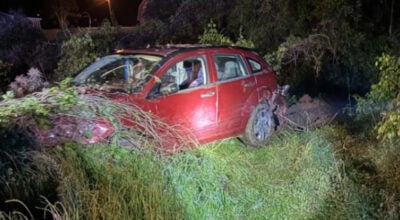SEC wins judgment against Rivera
Published 12:01 am Sunday, July 24, 2011
NATCHEZ — A federal judge ruled Thursday that would-be biofuels wizard John Rivera’s claims were not worth the hill of beans he claimed could be magically turned into fuel.
U.S. District Judge David Bramlette handed down a summary judgment against Rivera, affirming charges levied by the U.S. Securities and Exchange Commission.
The SEC’s case, filed in 2008, alleged that Rivera used false press releases and other false public statements to drive up interest — and stock price — in his company, U.S. Sustainable Energy Corp.
After the market manipulation was complete, the SEC said, the goal was for Rivera, his then companion, now wife, Alice M. Price and others to dump their insider shares of USSEC, reaping huge profits in what turned out to be a virtually worthless company.
The SEC says that Price sold more than 35 million combined shared in USSEC and Sustainable Power Corporation, another Rivera owned company.
USSEC was initially headquartered in Natchez in 2006, before later being moved to Baytown, Texas.
Rivera burst onto the Natchez scene in 2006 claiming ownership of a company that had patents to a revolutionary process to turn soybeans into biofuel.
His promises were on a grand scale. In 2006, Rivera claimed that his Adams County plans would include the possible hiring of up to 2,000 people and eventually produce 1.5 million gallons of the magical biofuel per day.
The flamboyant Rivera donated money to the Adams County Sheriff’s Office for protective vests in 2006. In return, a Santa-costumed Rivera was allowed to hitch a ride in the ACSO’s helicopter to drop in on a group of needy children at Christmas.
But the pinnacle of his showmanship occurred in November 2006 when he put on a sideshow routine allegedly powering the Vidalia City Hall with a generator, purportedly operating on the amazing elixir he’d managed to squeeze from soybeans.
The show was so impressive that it led to power contract negotiations between USSEC and the City of Vidalia. Rivera’s defense used the negotiations as evidence that his processes were commercially viable. The judge disagreed.
As part of the SEC’s request to the judge, Rivera may be barred from ever acting as a director or officer in a company having securities registered with the SEC. Further, he may be barred from ever participating in any “penny stock” offerings, such as the transactions involving USSEC.
Lastly, the ruling suggests that Rivera may be forced to pay back any of the money he earned illegally, interest earned on the money prior to the judgment and possible penalties for the actions.
The details of just how much he may be forced to pay will be decided at his next court appearance on Aug. 8 at the U.S. District Court in Natchez.





